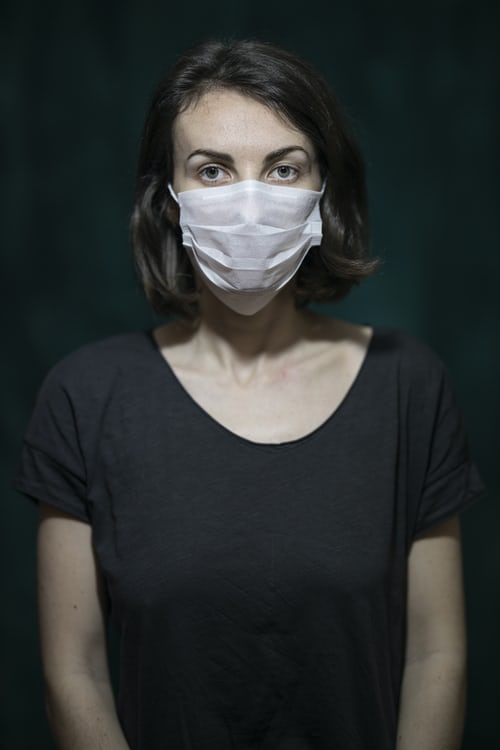
The pandemic has made the last year and a half an incredibly surreal and stressful time for all of us. Frontline workers, such as healthcare employees, as well as teens, have faced unique challenges on top of everything else. But a new study reveals that one group suffers much more than we thought, and yet has been largely ignored — women. While 65% of women told CNBC this year that the pandemic has made things worse for them professionally, a study published in The Lancet last month now says women are also much more likely than men to suffer pandemic depression and anxiety.
Why is this, and what can we do? The details of the study and the patterns of many women’s lives may shed some light.
What the study found
The October 2021 study notes that around the world, general rates of anxiety have gone up by 26 percent, while rates of depression have increased by even more — a staggering 28 percent.
But it doesn’t end there. When researchers compared the number of men who were newly diagnosed with major depressive disorder (18 million), they discovered that women were hit much harder, to the tune of 35 million. And the disparity was similar when it came to anxiety: 52 million women were diagnosed compared to just 24 million men.
Alize Ferrari, a co-author of the study, explained that the difference in depression and anxiety between men and women likely increased because the pandemic made existing inequalities even worse. “Sadly, for numerous reasons, women were always more likely to be worse affected by the social and economic consequences of the pandemic,” said Ferrari.
So what’s going on?
Researchers know from previous outbreaks such as SARS and the Ebola virus that women usually fare worse health-wise in pandemics. Here are some of the reasons why, and specifically as they relate to COVID-19.
Women are often caregivers.
Not only do women make up more than three-quarters of the US healthcare workforce, but 65% of “informal” (read: unpaid) caregivers are women, too. Since they’re more likely the ones caring for children and the elderly, they’ve been more at risk for mental health consequences.
For instance, caregiving responsibilities can cut into the number of hours a woman can dedicate to her paid job, which causes financial strain. Even if she is paid for caregiving, things like health insurance, paid leave, and overtime may be limited.
Caregiving itself is also very demanding. From taking care of laundry and cleaning, to preparing meals, providing transportation, showering, bathing, and dressing others, homeschooling, and/or constantly monitoring others’ safety, the task takes a huge toll. Well over half of caregivers skip their own doctor appointments, have poorer eating habits than non-caregivers, and worse exercise habits than they did before caregiving.
Because COVID-19 has created more of a need for caregiving, its psychological effects on women are worse.
Women are more likely to lose their jobs.
More than twice as many women (11%) are underemployed compared to men (4%). And just this past September, women lost 26,000 jobs while men gained 220,000.
This is likely happening because women tend to be caregivers more often and stay home with children who either aren’t in school yet or can’t go to afterschool childcare programs — making it harder to keep their 9 to 5 jobs.
Intimate partner violence (IPV) increased during the pandemic.
When everyone was required to quarantine at home 24/7 due to COVID-19, it worsened many situations for people with violent partners. More physical proximity combined with other stressors caused the rate of intimate partner violence to rise during the pandemic.
Generally speaking, while 1 in 10 men experience intimate partner violence, the rate is much higher for women — 1 in 4. So it’s easy to see why women would experience more pandemic depression and anxiety symptoms with the rise of IPV.
Treatment for pandemic depression and anxiety
Women who experience pandemic depression and anxiety can benefit from many types of therapy. Cognitive behavioral therapy can help reframe negative thinking patterns and can be very useful especially in mild to moderate cases. More severe cases of anxiety and depression may respond better to a combination of talk therapy and antidepressant medication.
Lifestyle changes can be a good first step toward feeling better before deciding whether to get outside help. These include paying attention to:
- Nutrition. Some researchers say the typical Western diet actually contributes to depression. Eating less red meat, refined grains, and sweets — and more fruit, vegetables, and fish — has been shown to decrease depression risk.
- Sleep. Creating a routine around sleep, such as turning off devices an hour before bedtime and sleeping at the same time every night, can help alleviate sleep disturbances.
- Alcohol intake. Drinking alcohol can intensify depression symptoms in particular, so be sure to watch how much you consume.
- Exercise. Getting your exercise in helps your brain release endorphins that increase your sense of well-being. Try exercising at the same time every day to make it a habit.
Of course, if these types of changes don’t make enough of an impact, we are only a phone call away.
Get the help you need
The stress of the pandemic can make the regular stressors in our lives feel much worse. Reach out to our team today to be matched with a provider who can help you work through your particular challenges.
Contact us by calling our office at 949.528.6300 or emailing us at info@OCHealthPsych.com. We’d be more than happy to help.
—Written by Ekua Hagan for Orange County Health Psychologists

